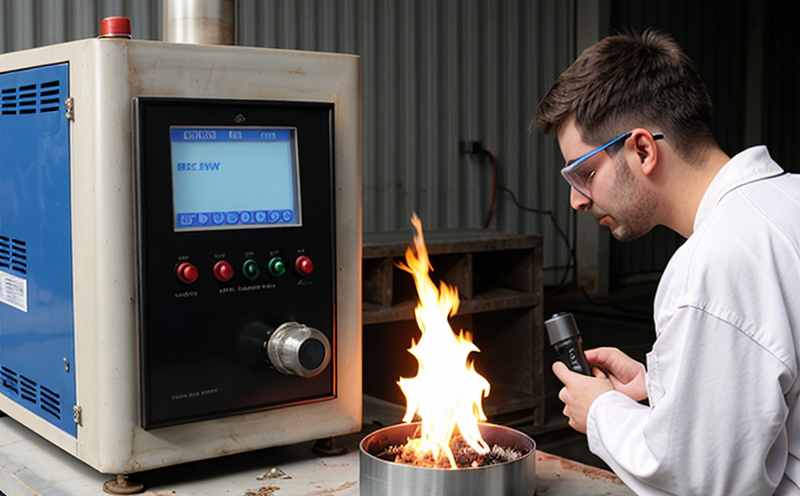ISO 13253 Packaged Unit Thermal Testing
The ISO 13253 standard is a critical benchmark in the HVAC industry, providing guidelines for testing packaged unit thermal performance. This service ensures that HVAC equipment meets stringent environmental and operational requirements, thereby enhancing efficiency and reliability.
Thermal testing according to this standard involves subjecting packaged HVAC units to controlled environmental conditions designed to simulate real-world operating scenarios. The primary goal is to evaluate the system's ability to maintain desired indoor temperatures while minimizing energy consumption and ensuring long-term performance stability. This service caters specifically to manufacturers, quality managers, and R&D engineers who need precise thermal data for decision-making processes.
The testing procedure begins with thorough preparation of the equipment specimen according to ISO 13253 requirements. This includes cleaning, labeling, and ensuring all components are in optimal working condition before being placed into the test chamber. Once inside, the unit is subjected to a series of temperature and humidity cycles that mimic various climate conditions.
Advanced instrumentation plays a crucial role throughout this process. Sensors monitor key parameters such as air temperature, humidity levels, airflow rates, and power consumption continuously during each cycle. These measurements are captured at regular intervals and analyzed using sophisticated software tools provided by our laboratory. The results form the basis of detailed reports that outline compliance with ISO 13253 standards.
Compliance with these standards not only ensures better performance but also contributes significantly towards sustainability goals by reducing waste and promoting energy-efficient practices within buildings. By adhering to rigorous testing procedures outlined in ISO 13253, manufacturers can rest assured they are delivering high-quality products that meet both current regulatory demands and future expectations.
Our experienced team of engineers uses cutting-edge technology and methodologies to conduct these tests accurately and efficiently. From initial consultation through final report delivery, we provide comprehensive support tailored specifically for your unique needs.
Scope and Methodology
The scope of ISO 13253 Packaged Unit Thermal Testing encompasses a wide range of parameters relevant to HVAC equipment performance evaluation. Key areas include static pressure drop measurements, airflow distribution patterns, cooling capacity calculations under various conditions, heating efficiency assessments, and sound levels determination.
- Static Pressure Drop Measurement: This measurement evaluates the resistance encountered by air as it passes through the system components. It helps identify any potential blockages or inefficiencies that may affect overall performance.
- Airflow Distribution Patterns: By analyzing how air moves throughout different sections of the unit, we can determine whether there is uniformity in distribution which impacts comfort levels and energy usage.
- Cooling Capacity Calculations Under Various Conditions: Testing under diverse climatic settings allows us to gauge actual cooling capabilities accurately.
For heating efficiency assessments, similar procedures are followed but with emphasis on evaluating how well the system performs during colder months. Sound level determinations ensure that noise generated by fans and other moving parts does not exceed permissible limits set forth by local regulations.
The methodology employed adheres strictly to ISO 13253:2017 guidelines which outline step-by-step instructions for conducting each type of test accurately. Our team ensures full compliance during every phase from specimen preparation through final analysis and reporting.
Customer Impact and Satisfaction
The impact of ISO 13253 Packaged Unit Thermal Testing extends beyond mere compliance; it directly influences customer satisfaction by delivering reliable, efficient, and energy-efficient HVAC solutions. For quality managers and compliance officers, knowing that their products meet these stringent standards instills confidence in both internal operations and external sales efforts.
- Enhanced Efficiency: Ensuring that the equipment functions optimally reduces operational costs and improves sustainability.
- Better Reputation: Compliance with international standards enhances brand reputation among environmentally conscious consumers.
R&D engineers benefit from detailed insights gained during testing, enabling them to make informed decisions about design improvements and material choices. Procurement teams appreciate the peace of mind knowing that suppliers adhere to high-quality standards before finalizing contracts.
Use Cases and Application Examples
This service finds application in numerous scenarios where precise thermal performance is crucial for optimal building operation. Some typical use cases include:
- New product development: Engineers can fine-tune designs based on real-world data obtained from testing.
- Compliance verification: Ensuring that existing models comply with changing regulations without disrupting current operations.
- Sustainability initiatives: Demonstrating commitment to reducing carbon footprints through improved energy efficiency measures.
An example application would be a manufacturer developing new air conditioning units intended for tropical climates. By subjecting prototypes to ISO 13253 Packaged Unit Thermal Testing, they ensure that these units can effectively cool down spaces even when ambient temperatures reach extreme levels without consuming excessive amounts of electricity.





